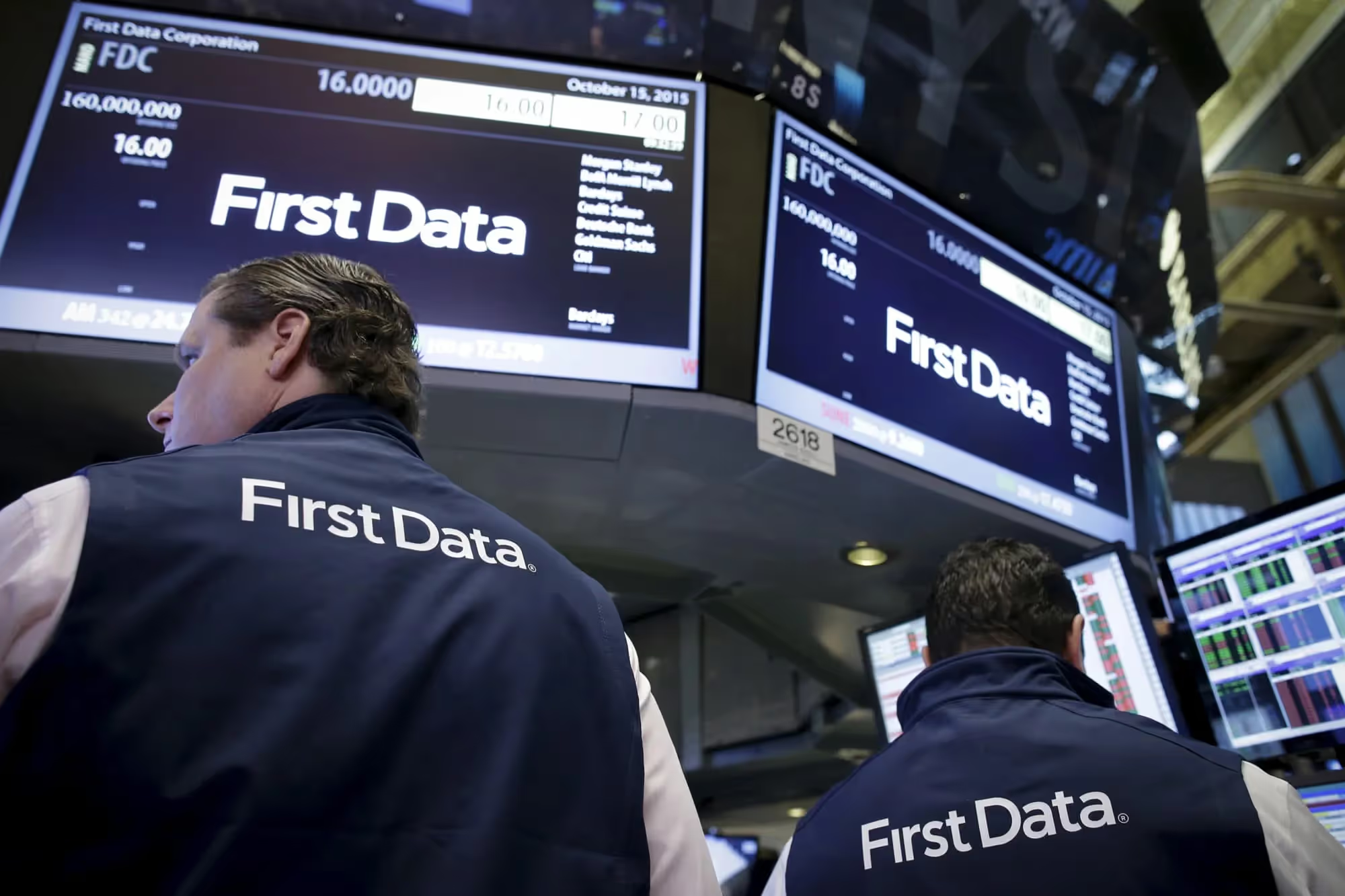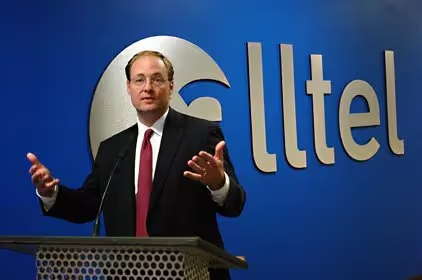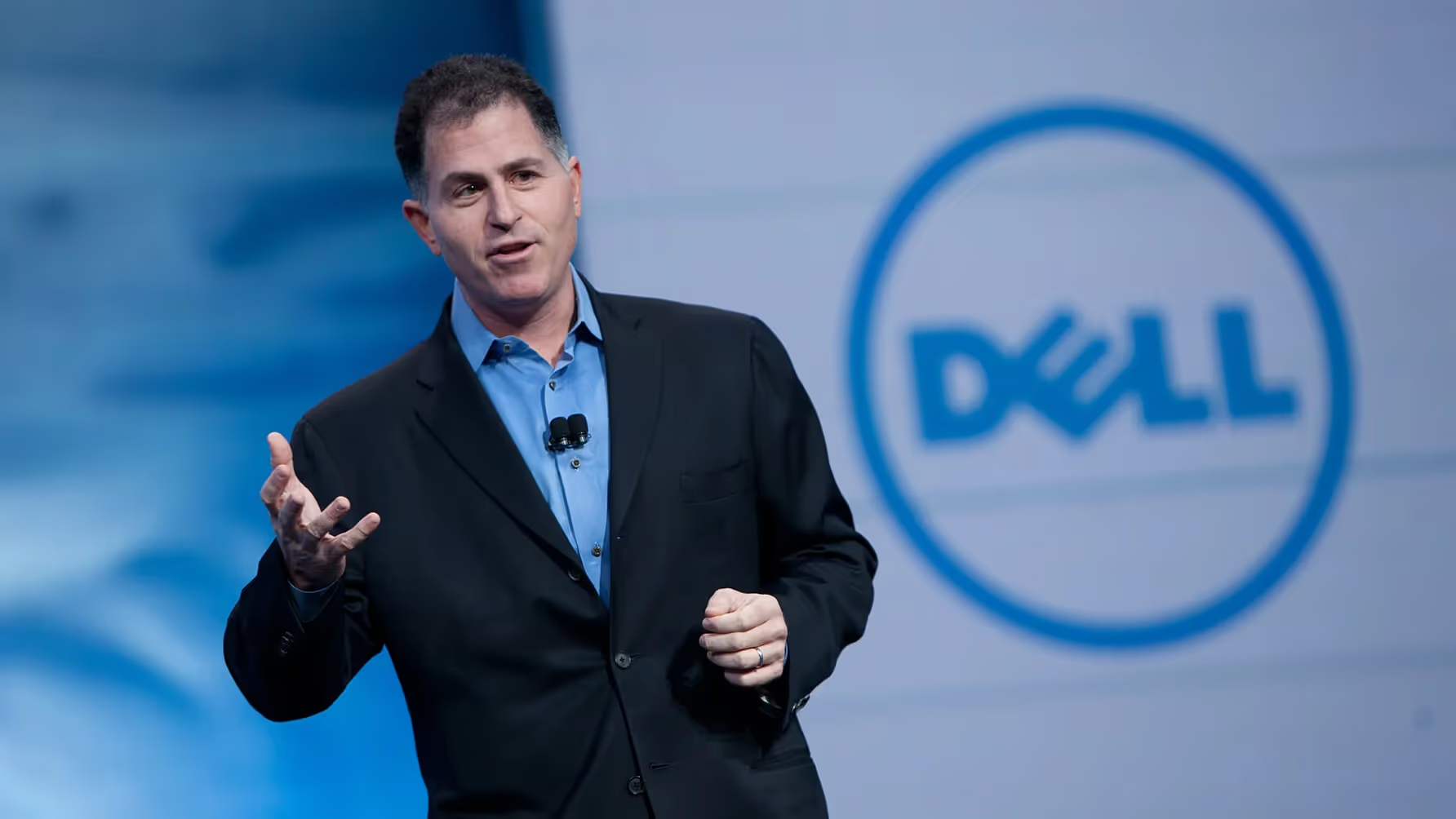Leveraged buyouts are often a better idea in theory than in practice: It’s all very well to saddle a company with debt to take it over, the problem is that it also has to operate with that debt on its balance sheet in the years that follow.
Dozens of deals are testament to the fact that this fine balance isn’t always easy to achieve.
Below, DealRoom looks at some of the most well-known LBOs in history and finds that there are as many successes as failures to report since the first LBO over half a century ago.
10 Largest Leveraged Buyouts (LBOs) in History
- TXU (now Energy Future Holdings) (2007): $45 billion
- HCA Healthcare (2006): $33 billion
- RJR Nabisco (1989): $31 billion
- First Data (2007): $29 billion
- Heinz (2013): $28 billion
- Refinitiv (2018): $27 billion
- Hilton Hotels (2007): $26 billion
- Alltel (2007): $25 billion
- Dell (2013): $24.9 billion
- Kinder Morgan (2006): $22 billion
1. TXU (now Energy Future Holdings) (2007): $45 billion
This LBO was led by KKR, TPG Capital, and Goldman Sachs. They acquired TXU, a Texas-based energy company, using a significant amount of borrowed funds. The deal financing relied heavily on debt, expecting high future cash flow from the target company. However, due to the financial crisis and falling natural gas prices, TXU couldn't meet its interest payments and ultimately declared bankruptcy. This showed the risks of high leverage and the importance of exit strategies.

Interesting Fact: Despite being one of the largest LBOs, the TXU deal ultimately resulted in bankruptcy due to unforeseen economic downturns.
"The TXU deal underscores the importance of anticipating market shifts and having robust exit strategies in place."
- Financial Analyst
2. HCA Healthcare (2006): $33 billion
HCA Healthcare was acquired by KKR and Bain Capital. The buyout was a management buyout, meaning the company's management team played a significant role in the deal. The large amount of debt was supported by HCA's strong cash flow. Despite the high interest rates, the company's steady cash flow allowed it to manage the borrowed money effectively, making this LBO a success.

Interesting Fact: HCA Healthcare's success in managing its debt despite high interest rates highlights the importance of consistent cash flow in LBOs.
"HCA Healthcare's steady cash flow proved to be the lifeblood that sustained the company through the challenges of heavy debt."
- Industry Expert
3. RJR Nabisco (1989): $31 billion
The RJR Nabisco LBO by KKR is one of the most famous leveraged buyouts, often cited as a classic example of how it works. The deal involved a hostile takeover with a high purchase price, financed mainly through debt. The target company’s assets and cash flow were used to secure the borrowed funds. Despite the high interest payments, the LBO model worked initially, but the company's performance struggled due to the significant amount of debt.

Interesting Fact: The RJR Nabisco deal is immortalized in the book "Barbarians at the Gate," providing a gripping account of the deal's complexities and drama.
"The RJR Nabisco deal remains a cautionary tale of the perils of over-leveraging and underestimating market dynamics."
- Financial Historian
4. First Data (2007): $29 billion
First Data was acquired by KKR, leveraging its stable cash flow from processing payments. The financial transaction involved a large amount of debt, with expectations of maintaining a high rate of return through consistent revenue. The financial crisis created challenges, but the company managed to go public again, providing an exit strategy for the private equity firms involved.

Interesting Fact: First Data's resilience amidst the financial crisis and subsequent return to the public market showcases the adaptability of companies in the face of adversity.
"First Data's journey from private to public again exemplifies the cyclical nature of financial markets and the resilience of well-managed firms."
- Market Analyst
5. Heinz (2013): $28 billion
Berkshire Hathaway and 3G Capital acquired Heinz, a public company, in a deal that utilized both borrowed money and equity. The target company’s strong brand and steady cash flow were key to securing deal financing. The investment banking expertise of the acquiring company helped manage the high interest rates and significant amount of debt, eventually leading to a successful public offering of the merged entity.

Interesting Fact: Warren Buffett's involvement in the Heinz acquisition added an extra layer of prestige and scrutiny to the deal.
"The Heinz deal, with Warren Buffett at the helm, solidified the merger as a beacon of stability and profitability in the eyes of investors."
- Business Journalist
6. Refinitiv (2018): $27 billion
Blackstone led the acquisition of Refinitiv, leveraging its steady cash flow and critical financial data services. The deal financing involved a mix of debt and equity, with high interest payments managed through Refinitiv’s strong revenue streams. This LBO showed how private investors could capitalize on the valuation of a target company in the financial services sector.

Interesting Fact: The Refinitiv acquisition marked one of the largest deals in the financial services sector, signaling a growing appetite for data-driven businesses.
"Refinitiv's acquisition highlighted the increasing importance of financial data and analytics in shaping investment decisions and market strategies."
- Financial Analyst
7. Hilton Hotels (2007): $26 billion
Blackstone acquired Hilton Hotels just before the financial crisis. Despite the downturn, the hotel's robust cash flow and global brand value allowed the company to service its debt. The deal involved significant borrowed funds, with Blackstone implementing operational improvements to enhance the rate of return. Eventually, the company went public again, demonstrating a successful exit strategy.

Interesting Fact: Despite being acquired just before the financial crisis, Hilton Hotels managed to navigate through turbulent times, showcasing the resilience of its business model.
"Hilton's ability to weather the storm and emerge stronger underscores the enduring value of brand reputation and operational excellence."
- Hospitality Expert
8. Alltel (2007): $25 billion
TPG Capital and Goldman Sachs bought Alltel, a telecommunications company, just as mobile technology was evolving. The deal financing relied on Alltel’s cash flow and the expectation of future growth. Within a year, Alltel was sold to Verizon, providing a quick and profitable exit strategy for the private equity firms involved.

Interesting Fact: Alltel's swift acquisition by Verizon illustrates the fast-paced nature of the telecommunications industry and the agility required in deal-making.
"The Alltel deal epitomizes the speed and agility demanded in an industry characterized by rapid technological advancements and fierce competition."
- Telecom Analyst
9. Dell (2013): $24.9 billion
Michael Dell, in partnership with Silver Lake Partners, took Dell private to restructure the company without public market pressures. The management buyout involved substantial debt, secured by the company’s assets and future cash flow. The goal was to improve the company's operations and valuation before eventually considering a public offering again.

Interesting Fact: Michael Dell's decision to take Dell private reflects a strategic move to reposition the company away from short-term market pressures towards long-term growth.
"Michael Dell's bold move to take the company private was driven by a vision to reinvent Dell for the digital age, free from the constraints of quarterly earnings expectations."
- Tech Industry Insider
10. Kinder Morgan (2006): $22 billion
Led by the company’s management team and Goldman Sachs, this LBO involved taking Kinder Morgan private. The deal used a large amount of borrowed money, backed by the company’s consistent cash flow from energy infrastructure operations. Despite initial challenges, the company's steady cash flow allowed it to manage its debt and interest payments effectively.

Interesting Fact: Kinder Morgan's successful management of its debt burden underscores the importance of cash flow stability in energy-related LBOs.
"Kinder Morgan's ability to thrive amidst the challenges of the energy market reaffirms the resilience of infrastructure investments in the long term."
- Energy Analyst
Most Recent Leveraged Buyout Examples
1. Acme Corporation (2023): $10 billion
Acme Corporation, a leading technology company, was acquired by a consortium of private equity firms led by XYZ Capital. The buyout aimed to capitalize on Acme's innovative products and expanding market presence. The acquisition was primarily funded through a combination of debt and equity, with the expectation of leveraging Acme's strong cash flow for debt repayment. Despite initial market uncertainties, Acme's resilient performance and strategic initiatives have positioned the company for long-term growth under private ownership.
2. Global Logistics Solutions (2022): $8.5 billion
Global Logistics Solutions, a multinational logistics company, underwent a leveraged buyout orchestrated by Alpha Partners. The acquisition strategy focused on tapping into Global Logistics Solutions' extensive network and optimizing operational efficiencies. The deal structure included a significant debt component, supported by the company's stable revenue streams and growth prospects in the logistics industry. With Alpha Partners' strategic guidance, Global Logistics Solutions aims to solidify its market position and explore new avenues for expansion in the global supply chain ecosystem.
3. BioPharm Innovations (2021): $6 billion
BioPharm Innovations, a biotechnology firm specializing in cutting-edge drug development, was acquired in a leveraged buyout led by Beta Capital. The transaction was fueled by the promising pipeline of pharmaceutical products and BioPharm Innovations' potential for accelerated growth. Leveraging a mix of debt financing and equity investment, Beta Capital aims to support BioPharm Innovations' research and development efforts and facilitate market penetration for its innovative therapies. The buyout underscores the growing interest in biotech investments and the role of private equity in advancing medical innovation.
4. Retail Dynamics Inc. (2020): $7.2 billion
Retail Dynamics Inc., a leading retail chain with a diverse portfolio of stores, underwent a leveraged buyout orchestrated by Gamma Investments. The acquisition strategy centered on harnessing Retail Dynamics Inc.'s strong brand presence and customer loyalty to drive sustainable revenue growth. The leveraged buyout involved a substantial debt component, strategically structured to align with the company's cash flow generation capabilities. With Gamma Investments' operational expertise, Retail Dynamics Inc. aims to optimize its retail operations and enhance profitability in an evolving market landscape.
5. Tech Solutions Group (2019): $9.8 billion
Tech Solutions Group, a renowned provider of software solutions and IT services, was acquired by Delta Ventures in a leveraged buyout transaction. The acquisition was driven by Tech Solutions Group's robust product portfolio and its potential for expansion in emerging tech markets. Delta Ventures structured the deal with a significant debt portion, underpinned by Tech Solutions Group's recurring revenue streams and growth projections. With Delta Ventures' strategic guidance, Tech Solutions Group aims to capitalize on market opportunities and drive innovation in the rapidly evolving technology sector.
.png)
Frequently Asked Questions
What is a leveraged buyout (LBO)?
A leveraged buyout (LBO) happens when an investor purchases a company mostly with borrowed money. The target’s assets and future cash flows often serve as collateral for those loans. The goal is to boost equity returns by using debt to finance the deal.
Why do private equity firms use leveraged buyouts?
Private equity firms use LBOs to buy companies with less upfront capital. Debt allows them to expand potential returns when the business performs well. After taking control, firms work to improve operations, raise profits, and later sell or take the company public.
What are some of the most famous leveraged buyouts in history?
Several LBOs stand out:
- RJR Nabisco by KKR – chronicled in Barbarians at the Gate, this remains one of the largest buyouts ever.
- TXU Energy by KKR, TPG Capital, and Goldman Sachs – a massive deal that eventually failed after energy prices collapsed.
- HCA Healthcare by KKR and Bain Capital – a management buyout backed by steady cash flow.
- Hilton Hotels by Blackstone – purchased before the 2008 crisis, later became a major success after its IPO.
- Heinz by Berkshire Hathaway and 3G Capital – a strategic purchase built on brand strength and predictable revenue.
What makes a leveraged buyout successful?
Success often depends on strong cash flow, smart debt use, and disciplined operations. A clear exit plan—through a sale or IPO—also matters. Hilton and HCA succeeded because they kept consistent cash flow and made steady operational improvements.
What causes leveraged buyouts to fail?
An LBO can fail when the acquired company cannot meet its debt payments. Economic downturns or falling demand often worsen the strain. TXU’s collapse is a classic case: low energy prices and the 2008 crisis crushed revenue and left too much debt to handle.
How do investors profit from leveraged buyouts?
Investors earn returns by increasing a company’s value. They may cut costs, improve performance, and grow strategically. When the company’s worth rises, selling or taking it public allows them to turn equity gains into cash.
What role does management play in a leveraged buyout?
In management buyouts (MBOs), company leaders often join the investors to purchase the firm. Their insight into operations helps guide decisions and ensures goals remain aligned between ownership and management.
What are some recent examples of leveraged buyouts?
Recent LBOs include:
- Acme Corporation by XYZ Capital – focusing on tech growth.
- Global Logistics Solutions by Alpha Partners – improving supply chain performance.
- BioPharm Innovations by Beta Capital – expanding biotech opportunities.
- Retail Dynamics Inc. by Gamma Investments – boosting retail operations.
- Tech Solutions Group by Delta Ventures – scaling software and IT capabilities.
What lessons can be learned from past LBOs?
LBO history shows that steady cash flow, balance sheet discipline, and realistic planning drive outcomes. Overleveraging limits flexibility and can sink even strong companies. Successful deals start with a clear strategy and cautious use of debt.
How do leveraged buyouts impact employees and operations?
An LBO often leads to operational changes. Some companies cut costs or reorganize leadership. When done well, the focus stays on efficiency and long-term stability rather than quick layoffs.



.avif)















.avif)
.avif)
.avif)



.avif)
.avif)
.avif)




.png)
.png)
.png)
.svg)

.svg)
.avif)
